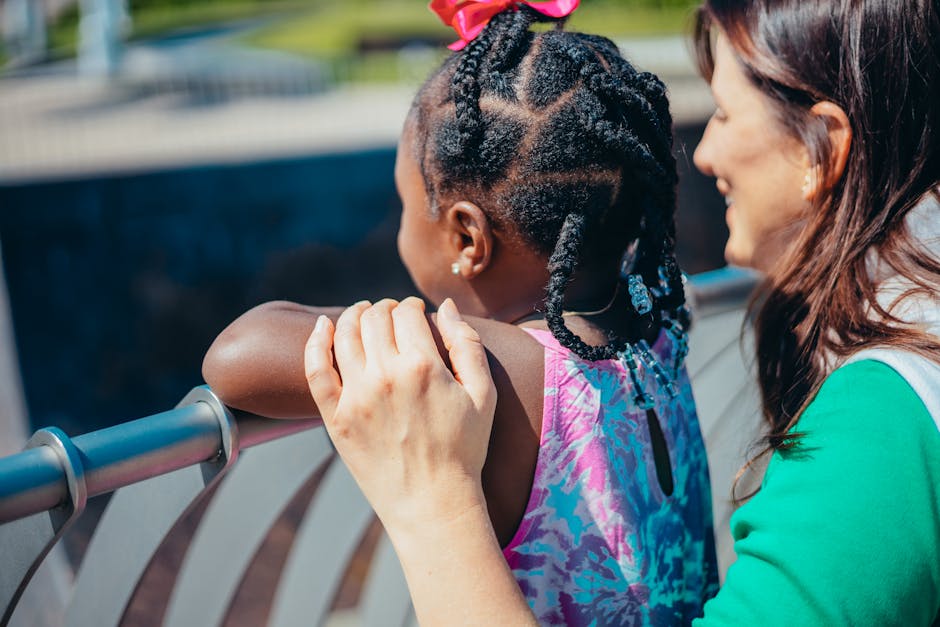Resilience, the ability to bounce back from adversity, is a crucial life skill for children. While many factors contribute to a child’s resilience, the strength and support provided by their family play a pivotal role. This article explores the intricate connection between strong families and the development of resilience in children, examining the various facets that contribute to this crucial relationship.
A resilient child isn’t immune to hardship, but possesses the inner fortitude to navigate challenges, learn from setbacks, and ultimately thrive. A robust family unit, acting as a bedrock of support, significantly empowers this capacity. This involves more than just financial security; it encompasses emotional availability, open communication, and consistent positive interactions.
Family dynamics, the intricate web of relationships within a household, are a profound determinant of a child’s resilience. A nurturing and supportive family environment provides a secure base from which children can explore the world, experiment, and recover from inevitable stumbles. This secure base is characterized by several key attributes.
First and foremost, a strong sense of belonging and acceptance is paramount. Children need to feel loved unconditionally, regardless of their actions or mistakes. This acceptance fosters self-esteem and a belief in their own worth, crucial components in building resilience. Families who actively celebrate individuality, acknowledge the unique contributions of each member, and create spaces for open expression foster an environment where children feel valued and safe to express themselves.
Open communication, a two-way street of empathy and understanding, is another hallmark of resilient families. Children need opportunities to voice their thoughts, feelings, and concerns without fear of judgment or retribution. This means parents actively listen, validate their child’s experiences, and engage in respectful dialogue, even during disagreements. This process empowers children to develop essential communication skills and understand that their perspectives matter. Families who prioritize respectful communication establish crucial communication patterns that last a lifetime.
Consistent boundaries and expectations, when applied with understanding and empathy, significantly contribute to a child’s sense of security and predictability. Clear guidelines provide a framework within which children can navigate the world, encouraging responsible behavior and a sense of control. However, these boundaries must be reasonable and aligned with the child’s developmental stage, fostering a balance between structure and freedom. Flexibility and adjustments based on individual circumstances also play a vital role in this aspect.
Active problem-solving as a family unit is equally crucial. When children witness their parents and other family members addressing challenges and finding solutions collaboratively, they learn invaluable problem-solving skills. This proactive approach demonstrates that challenges can be overcome, and that working together can lead to positive outcomes. Sharing in problem-solving gives children an invaluable confidence in their ability to navigate difficulties.
The role of positive role models within the family is indispensable. Children learn by observing and mimicking the behaviors of those around them. A family demonstrating resilience in the face of adversity, through coping mechanisms such as seeking support or maintaining a positive outlook, provides a powerful model for the child. Parents modeling self-care, managing stress effectively, and demonstrating empathy cultivate crucial resilience attributes in their children.
Family rituals and traditions, whether large or small, play a significant role in creating a sense of continuity and belonging. These shared experiences reinforce bonds, provide a comforting sense of routine, and offer opportunities for children to connect with their cultural heritage. Regular family dinners, bedtime stories, or special celebrations create cherished memories and a sense of unity.
Beyond these core elements, a family’s ability to navigate stress and crisis effectively significantly impacts the child’s resilience. Families who can adapt to unexpected changes, whether financial hardship, illness, or relocation, demonstrate to the child that difficulties are surmountable. Open dialogue about these challenges, the proactive exploration of resources, and collective coping mechanisms are critical components.
Ultimately, a strong family unit provides a foundation for resilience, allowing children to develop essential coping mechanisms, emotional intelligence, and a positive self-image. Their experiences within this framework shape their ability to face challenges head-on, learn from mistakes, and persevere in the face of adversity. The influence of a strong family unit extends far beyond childhood, shaping the adult children become and the future generations they may raise.
